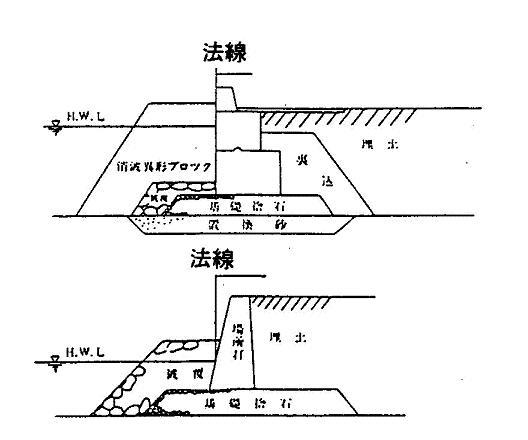- Yokohama-shi Top Page
- Business
- Menu by field
- Harbor
- Port Business Glossary
- Port Business Glossary - Let's
The text is from here.
Port Business Glossary - Let's
Last updated on August 5, 2024.
A B C D E F G H I J K L M N O P Q R S T U V W X Y Z
-Ah- -- -- -- -- -- -- -- - La- --wa-
--
- Weekly Service (weekly service)
- This refers to the form of service in which regular ship allocation is performed once a week.
- Waver System (Waiver System)
- A system in which a ship in a country that has not concluded a bilateral agreement or a trade and shipping treaty with a country that has adopted a cargo reservation policy (to restrict the loading of foreign ships to and from their own country to develop and promote their own shipping business) must obtain a document (weber) in advance that the ship has not entered service. In the past, it was required for Japanese flags in Korea.
- Way port
- On the way. Ports that exist in the middle of operation, not at both ends covered by the regular route. Wayport service refers to such a port call service. For example, a container ship on the European route calls at a port in Southeast Asia on the way and loads local cargo from Japan.
- Waterfront (Waterfront)
- Generally, it refers to land that faces the surface of the water, such as the sea or lake, and has the necessary expanse to be used integrally. In Yokohama Port, it often refers to the part adjacent to the city and facing the public water surface. In recent years, urban development utilizing the border line has been proposed in various fields, and its redevelopment has been attracting attention.
- Ukisanbashi
- →Pontoon
- Sea cra
- Abbreviation of Yokohama Maritime Reporter Club. There is an office in Yokohama Customs, and currently 12 companies are affiliated. In addition to the director's meeting, the Port and Harbor Bureau holds meetings and distributes materials from time to time. (Jurisdiction: Bureau, General Affairs Division)
- Landfill Law
- This is the shoreline created by H.W.L., when the highest tide level is H.W.L., which compares the most recent spring equinox and autumn equinox tide level. Determined by the structure of the revetment.

- Upper shoulder (Uwakata)
- Shoulder cargo workers in coastal work. At present, there is not much work of this kind.
- A shed (transit shed)
- Generally, a building built close to the quay for cargo handling and temporary storage, which is distinguished from a warehouse that is stored for a long time. As of August 2016, there are 45 public sheds.
- Uwaya Tomae Receiving System (TRS: Terminal Receiving System)
- This system was adopted in 1970 by the North American Liner Alliance and was introduced in Yokohama and Kobe. A system in which general miscellaneous goods received in front of the shed are subsequently undertaken at the shipping company's expense and responsibility until shipment. This system expands the scope of responsibility for shipping companies, but its usage is currently low due to progress in containerization.
- Operation Outsourcing
- All profit or loss associated with the operation of a ship is calculated by the shipowner himself, but only by entrusting the ship to an operator capable of operating. In this case, the shipowner pays a contract fee to the operator as a reward for entrusting collection and ship allocation.
- Operating expenses
- It's also called a voyage fee. In addition to shipping costs, the components that constitute the operating expenses of the shipping company. Expenses directly required to earn fare revenue from the operation of ships, such as fuel costs, port costs and cargo handling costs, and expendable supplies costs.
- Operating income
- The gross profit of the shipping company, which is obtained by subtracting operating expenses from fare revenue.
- Fare Alliance
- →Marine Alliance
- Fare pool
- Multiple shipping companies shall contribute and pool fares stored on specified routes and allocate them based on the specified ratio.
- Fare burden
- Additional cost of fare compared to product production cost (commodity value). This is a guide when the fare level is set.
Inquiries to this page
Port and Harbor Bureau General Affairs Department General Affairs Division
Phone: 045-671-2880
Phone: 045-671-2880
Fax: 045-671-7158
E-Mail address [email protected]
Page ID: 784-960-011







